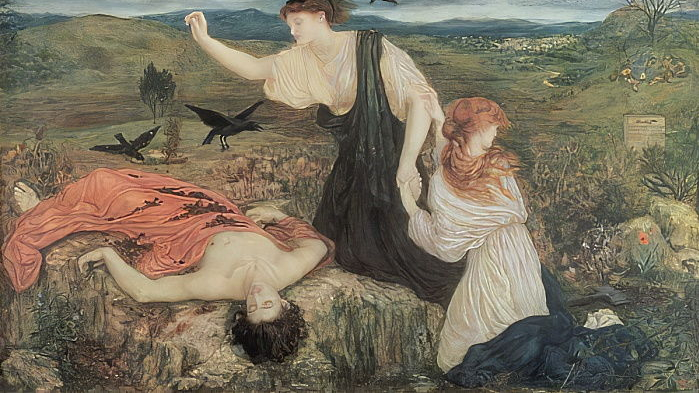‘As she walked home she thought how much more pleasant life was when you lived among foreigners whose subtexts you couldn’t hear.’

So much has already been written about Kamila Shamsie’s seventh novel since its publication two years ago that I feel anything I have to say would be nothing but a flimsy regurgitation of better-worked analysis. Home Fire is a huge novel condensed into 250 pages with some of the greatest questions probing UK politics today parked front and centre: who determines a national identity? why do people become radicalised? Peter Carey named it ‘recommended reading for prime ministers and presidents everywhere’. The New Statesman wrote that ‘Shamsie expertly distils a vast socio-political landscape into human bodies’. It’s shocking, poignant, alarmingly modern and deeply unsettling. It’ll stick around in my memory for a long time, which is something only the rare few books achieves for me. It’s incredible, and I think incredible books demand shorter reviews.
My knowledge of Greek tragedies is sadly not what I’d like it to be, so when I read that Home Fire was a re-working of Sophocles’s Antigone I had no expectations. However, it quickly becomes apparent in Shamsie’s novel that the jarring combination of familial ties and larger societal questions are at the heart of this tale. If I know anything about Greek tragedy, it’s that these two are often the married couple that hold the mirror up to the modern condition even now. So Shamsie’s novel stars the modern British family – siblings Isma, Aneeka and Parvaiz Pasha, living in Wembley. Isma is a 28 year-old Muslim hijabi woman who took to raising her younger twin siblings after the untimely death of their mother and the mysterious disappearance of their father. We soon come to know that Pasha travelled to Afghanistan to join the Taliban before being captured at Bagram Airfield and dying of a seizure on the flight to Guantánamo Bay. The novel begins with Isma being held and questioned at airport security before her flight to Massachusetts where she has returned to study for her phD. She misses her flight to Boston because of the delay, but finally reaches Amherst. A chance encounter in a coffee shop leads Isma to Eamonn Lone, the son of the politician and soon-to-be Home Secretary Karamat Lone, the ‘Lone Wolf’. Isma detests Karamat due to his whitewashed political rhetoric and the fact that he turned his back on his own Muslim roots to climb the political ladder – not to mention some bad blood over what happened with her family and her father years before. Nevertheless, Isma strikes up a friendship with Eamonn.
‘When had this phrase become so popular: ‘my truth’? Hateful expression, something so egocentric in it. And something so cynical, also, about all those absolute truths in the world.’
This chance encounter is the domino that sets all events tumbling. Eamonn goes back to London and drops by Isma’s Wembley home under the guise of giving Aunty Naseem M&M’s, but it’s really to meet the beautiful Aneeka. The two embark on a steamy love affair before Eamonn realises Aneeka’s initial intention was to get close to the Home Secretary’s son in order to get her brother safely home from Syria with a passport. Aneeka’s love for her brother has survived his betrayal of his family, his country. Parvaiz Pasha has, it becomes clear, been coerced into joining IS and has now changed his mind. But Karamat Lone has just announced that British citizenship will be stripped of anyone travelling to join IS or other terrorist organisations – Eamonn is in quite the Greek pickle.
Going any further would ruin the tense drama and glorious climax of Home Fire. It truly has one of the greatest endings I’ve read in a while. I suppose that for those more well-versed in Greek tragedy and Antigone specifically, it would’ve been a little more overt how the story would turn out and the fates of its characters. Shamsie is subtle whilst making the parallels clear enough: Karamat Lone is King Creon, Isma and Aneeka evidently sisters Ismene and Antigone, Parvaiz the excommunicated Polynices, Eamonn as Haemonn, Creon’s son and Antigone’s fiancé and Karamat Lone’s wife Terry is Terisias, the voice of reason in the safe room when all is too late. It’s a wonderful and incredibly impressive re-imagining which, as Dwight Garner argued, ‘hews to Antigone‘s themes: civil disobedience, fidelity and the law, especially as regards burial rights.’ It is troubling just how present Shamsie’s novel is – what exactly has changed in British politics in the three years since she wrote Home Fire? The news outlets are flooded with Brexit narrative but a story was published on BBC News today about the British Citizenship test. Mark Easton asks: Do we want foreign residents to become British or not? Underneath a Muslim woman wearing what appears to be a Shayla (apologies if this is wrong) holds one edge of her certificate whilst some absurd-looking Brit in full military uniform pinches the other. Would her calls, texts and emails be tapped like Aneeka and Isma Pasha’s by a suspicious Home Office?It is both troubling and incredible how the same themes of community and the law are as relevant now as they were in 441BC. Shamsie has done an exceptional job of uprooting fear-mongering, sensationalist headlines and exploring the painful divisions of love and family that play out behind the scenes.
I thoroughly enjoyed Home Fire. I felt shocked, powerless, completely heartbroken at the visceral reality of Muslims in Britain today. To make a reader feel so intensely is a feat Shamsie executes with grace and solid confidence, up until the final page – the final curtain drop on the tale of Britain today.
